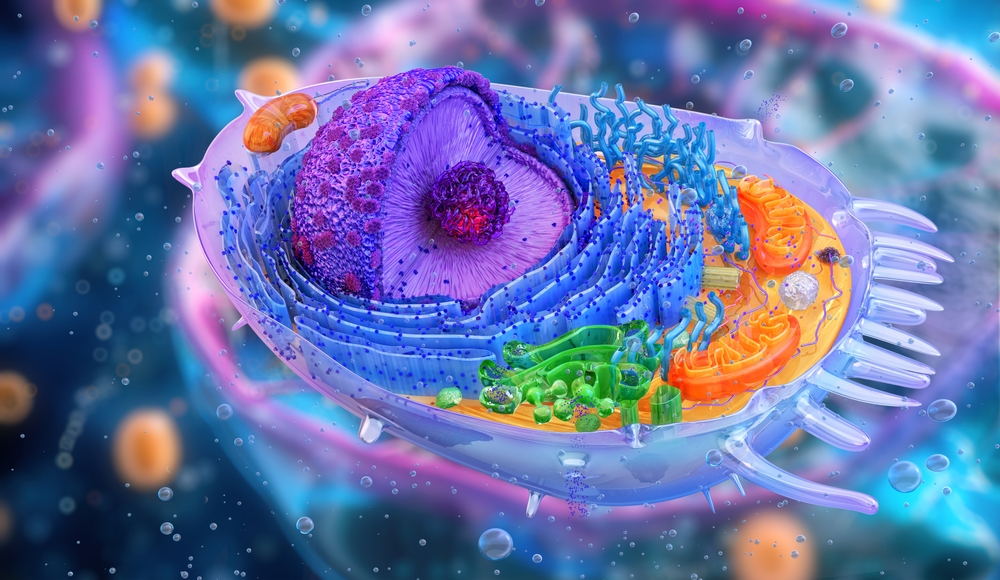Now Reading: Breakthrough Human Cell Map Sheds Light on Cancer Development
-
01
Breakthrough Human Cell Map Sheds Light on Cancer Development
Breakthrough Human Cell Map Sheds Light on Cancer Development

Fast Summary:
- Scientists completed sequencing the human genome two decades ago, yet much about how proteins within cells are organized and interact remains unknown.
- A team led by Trey Ideker at UC san Diego created a detailed map of a human cell that identifies over 5,000 proteins and their assemblies.
- Their findings showed that half of these protein structures are not documented in current cell biology textbooks.
- Using techniques like protein interaction mapping (“bait” proteins) and visualization through glowing antibodies, researchers plotted precise locations for many cellular components.
- The study focused on U2OS cells linked to pediatric bone tumors, identifying around 100 mutated proteins associated with cancer mechanisms.
- Researchers argue studying larger biological systems disrupted by cancer is more effective than focusing solely on individual mutations.
- this map provides insights into cellular systems that coudl enhance research for tailored medical treatments in the future.
Indian Opinion Analysis:
The comprehensive mapping of human cells performed by Ideker’s team represents a pivotal scientific breakthrough with potential implications for India’s healthcare research ecosystem and medical innovations in personalized treatment strategies. Mapping protein interactions enables researchers to better decode diseases like cancer-a major health burden in India-and suggests approaches targeting larger systemic disruptions rather than isolated mutations.
India’s robust pharmaceutical sector can benefit from leveraging such data in drug discovery programs while tailoring solutions based on individual molecular profiles,which could lead to advancements such as precision medicine becoming viable locally despite infrastructure challenges. Furthermore, as this methodology evolves toward scalability akin to genome sequencing advancements, Indian research institutes should collaborate internationally to integrate this knowledge into addressing endemic genetic disorders or cancers prevalent within it’s diverse population.
Adopting technology-driven approaches such as interactive cell mapping offers transformative potential but also underscores the need for investments in cutting-edge bioinformatics tools domestically-critical stepping stones toward impactful outcomes on national healthcare metrics.
























